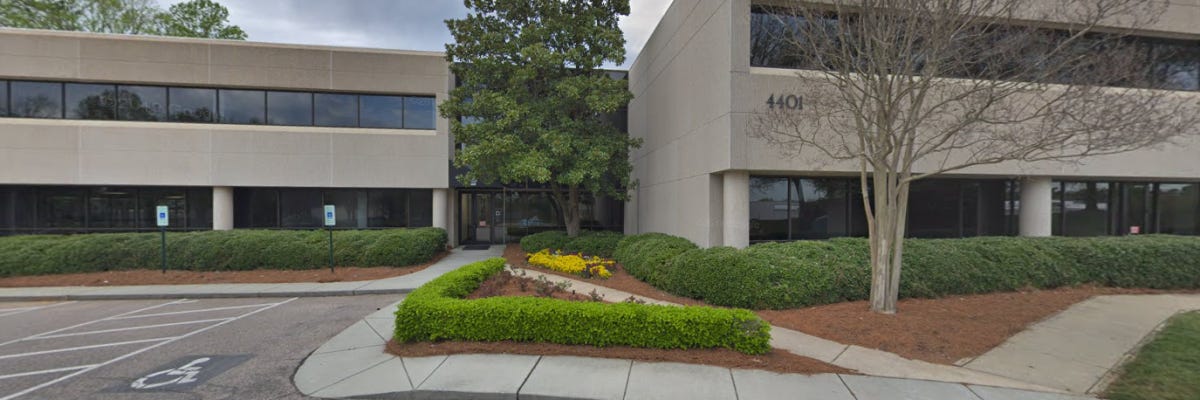Governor Stein's Budget: Directs Billions Toward Building and Upgrading North Carolina’s Infrastructure
Plan reflects a long-term commitment to strengthening public infrastructure. With billions directed toward education, health, safety, and environmental projects.
Holly Springs, NC, Apr. 1, 2025 — Governor Josh Stein’s 2025–27 Recommended Budget calls for a sweeping investment in North Carolina’s infrastructure, directing billions toward schools, universities, public safety facilities, health care centers, and environmental systems. The capital plan is designed not only to modernize aging buildings and systems, but also to support economic growth, public health, and long-term resilience.
Statewide Capital Investments Totaling $3.4 Billion
The proposed budget includes $3.4 billion in new capital spending over the biennium, with funding spread across dozens of state agencies and institutions. This includes new construction, facility upgrades, equipment purchases, and deferred maintenance projects. The budget emphasizes that “responsible capital planning ensures our facilities are modern, safe, and prepared for future growth.”
Education and Higher Ed Projects Get Top Priority
A significant portion of capital funding is earmarked for public education:
The University of North Carolina system would receive over $180 million for capital improvements across its campuses, including renovations to classrooms, labs, and student housing.
North Carolina Community Colleges would receive $100 million over two years for building repairs, energy efficiency upgrades, and instructional equipment.
The Needs-Based Public School Capital Fund would provide $200 million to public school facilities in economically disadvantaged counties.
The budget notes that these investments are essential to ensuring that “students learn in safe, modern environments that support academic and career readiness.”
Expanding Health Care Access and Safety Facilities
The Department of Health and Human Services would receive over $130 million for upgrades at state-operated health facilities. This includes new equipment and safety improvements at psychiatric hospitals, developmental centers, and substance use treatment facilities.
For public safety, the budget sets aside funds for:
$64 million for new or improved State Highway Patrol, National Guard, and Emergency Management facilities
$16.6 million for improvements at juvenile justice facilities
Modernization of courtrooms and justice infrastructure across the state
Environmental and Resilience Projects
The Department of Environmental Quality would see investments in flood mitigation, dam repairs, and water infrastructure improvements. The proposal includes $25 million for coastal resilience efforts, particularly in communities vulnerable to hurricanes and rising sea levels.
Additionally, the budget supports clean energy development, including grants to local governments and upgrades to state buildings that reduce energy consumption.
Supporting Local Communities and Rural Infrastructure
Recognizing the need for regional equity, the proposal also allocates:
$150 million in flexible funding to local governments for infrastructure needs, including water and sewer improvements, road repairs, and downtown revitalization
$50 million for rural broadband expansion and digital infrastructure
Additional funding for libraries, parks, and cultural institutions in underserved communities
How These Projects Will Be Funded
Unlike operational spending increases, many capital improvements will be funded through a mix of General Fund appropriations, debt service, and cash reserves. The budget continues to use pay-as-you-go financing for a significant portion of the projects, helping to avoid new borrowing where possible.
Much of this is made possible by halting future income tax cuts. By maintaining current tax rates, the state preserves over $2.4 billion in revenue over the biennium, allowing investments in infrastructure without risking budget shortfalls. The budget emphasizes that capital spending is “aligned with projected revenue growth and long-term affordability.”
The proposal also recommends increasing the debt capacity for future projects while maintaining North Carolina’s AAA credit rating, giving the state flexibility to fund additional high-impact infrastructure needs in the years ahead.
Summary
Governor Stein’s capital improvement plan reflects a long-term commitment to strengthening North Carolina’s public infrastructure. With billions directed toward education, health, safety, and environmental projects and a responsible funding strategy to back them, the proposal aims to modernize the state’s physical foundation while fueling job creation and regional development.

